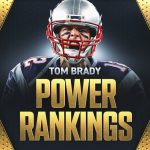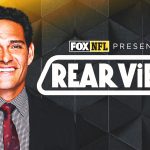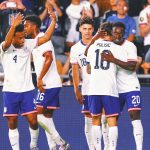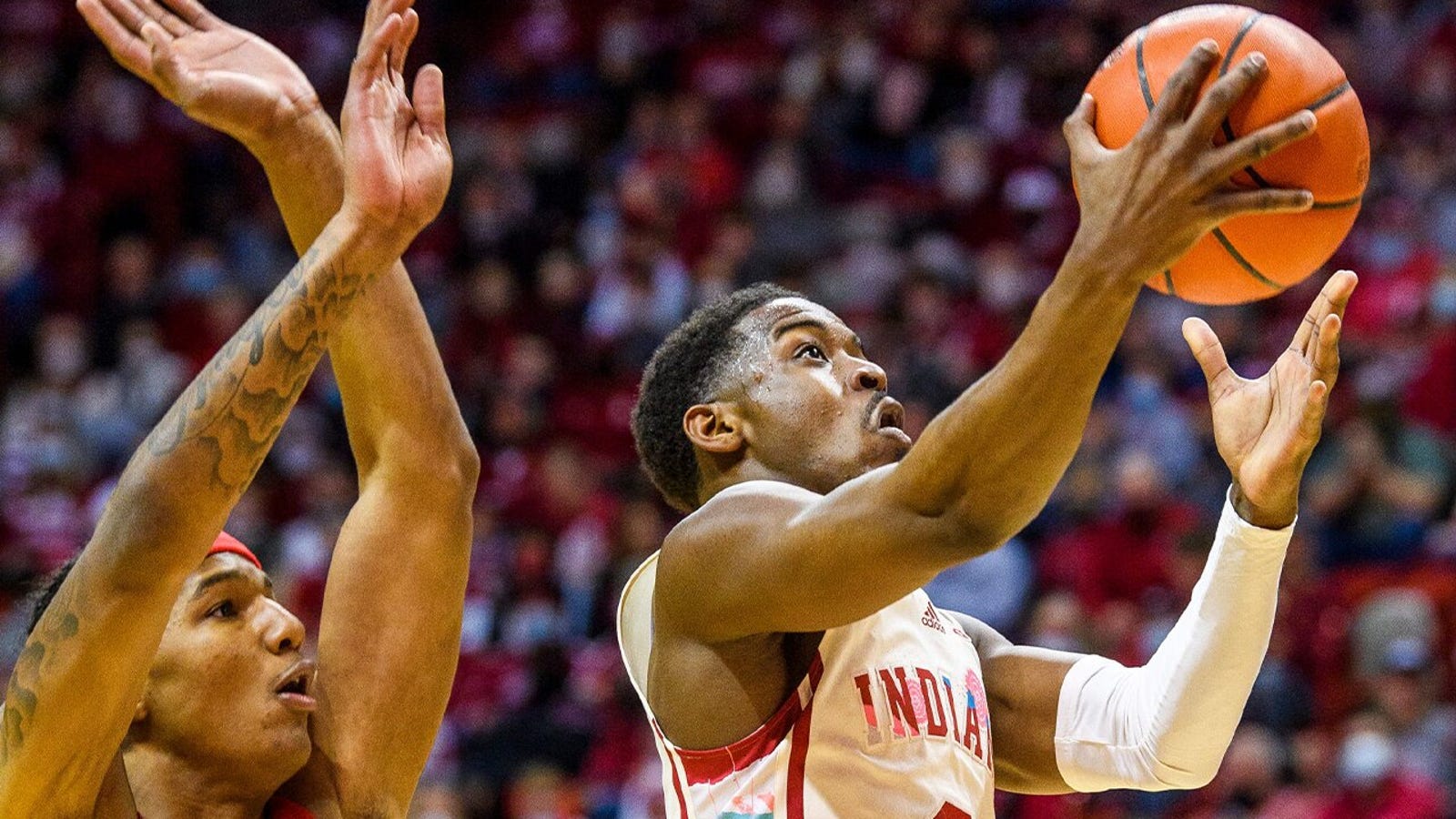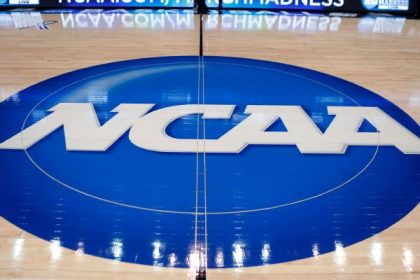When Mike Woodson was hired by Indiana as the program’s head men’s basketball coach in 2021, a fair share of critics made their opinions known about the legendary program going the Bob Knight route and hiring the former All-American player. While Woodson had 25 years of coaching experience — including nine in the NBA — he had never led a college hoops program.
Rather quickly, the Hoosiers’ new leader got to work and retained four of the six players that had entered the transfer portal, convincing them to come back to Bloomington and give him a shot. Trayce Jackson-Davis was obviously the most important player to keep around, and the 2023 Karl Malone award winner and All-American that powered the Hoosiers to a top-3 finish in the Big Ten told FOX Sports that Woodson was the reason he returned.
The first two years of the Woodson regime have brought better results after Archie Miller’s firing following a 12-15 season, with the Hoosiers combining to go 44-26 and 21-19 in the Big Ten.
There are some key questions entering 2022-23, though:
ADVERTISEMENT
- What will IU look like with Jackson-Davis, Jalen Hood-Schifino, Race Thompson, Miller Kopp and three other players who are now gone?
- How much differently will the Hoosiers play without a traditional post player in Jackson-Davis now gone to the NBA?
- Can Woodson sustain success, if not translate the recruiting success (Hoosiers incoming class ranks No. 11 nationally this year) into even bigger results in March? Thus far, it’s been two trips to the NCAA Tournament and one win over Kent State this past year before being eliminated by Miami.
- Could Indiana be the dark horse in the Big Ten?
We explored that question and took a deep dive into the Hoosiers with Woodson in a FOX College Hoops exclusive conversation.
How would you assess your first two years on this job?
“Well, I think we’ve made some major strides in the right direction, but again, my goal coming in — and it’s not going to ever change — is that we’ve got to win Big Ten titles and national titles. That’s the only reason why I came back to Indiana. I have no other agenda. This is not about me. It’s about the student-athletes that I’m recruiting, and making sure they’re doing all the necessary things on and off the court. That means getting it done in the classroom and then when they do get to me, that they’re willing to work and do what’s asked of them to help us win basketball games. I’m pleased with where we are, but this is a different year. The first two years are behind me, and I take it a year at a time as a coach. I’ve always done that. I try to get my team in the best position possible to win basketball games.”
What are your thoughts on name, image and likeness?
“It is what it is. It’s not going anywhere. It’s part of the college game now. I’m not against it at all by any means, but I don’t want players thinking that NIL is going to control this institution and this basketball team, and how we conduct our business. You go to college to get an education. If you play sports, you try to master your sport and be the best you can be to compete at the highest level. NIL should not be the driving force. When I’m recruiting players, if I think that NIL is the driving force to come to Indiana as opposed to playing for our program, I don’t want you. You can go somewhere else. It is what it is and everybody has to deal with it. At Indiana, we’re at a great place with it. But for me, it’s still about educating these kids and making sure they have a firm foundation when they do leave me.”
How do you feel about USC, UCLA, Oregon and Washington joining the Big Ten?
“I think it’s healthy. It’s great competition for us. I’ve never run from competition as a player or head coach. The way the Big Ten is run, you can tell it will benefit us. It’s my job to get my team ready because those teams coming to our league are damn good. Look, we’ll make that West Coast swing as long as they’ll come east to play us. And who knows? There could be other teams that could possibly join the Big Ten down the road. We’ve just got to worry about your team, build your team and see what happens.”
With six new scholarship players, you said this summer that it would be a process to figure out how you want to play and who will do what. To this point, what have you learned about this group thus far?
“I’m still in learning mode. I’m still trying to figure it out. Something is not going to happen overnight. We’ve just got to continue to practice and put time in, and look at different combinations. There’s just a lot to teach. When you add pieces like this — and I’ve done it before in the NBA — you’ve got to teach a lot. You’ve got to hope they pick up things a lot sooner than you would expect them to. We watch a lot of film here. Film is a great teaching tool when you’re trying to get your point across on both ends of the ball. We have a long way to go as a ball club. Am I pleased with where we are today? Yes, but there’s a long way to go. There’s so much that I’ve got to get in, my staff and I, to get to that point where we’re ready to play in October.”
Having Xavier Johnson back, how much does it mean for everything you’re trying to do?
“It’s huge. He’s a veteran point guard that’s played enough college basketball games to make a difference. You guys have no idea how much it hurt us last year not having him on the floor. It was a tremendous loss. You don’t go into any season thinking you’re going to lose players even though it’s a part of sports. Losing X was huge. I’m glad he’s back, and we’ve got to make sure he stays healthy this season. He’s our floor general along with Gabe (Cupps) and Trey Galloway. Everybody will have an opportunity to handle the ball, but you’ve got to be able to make quality basketball decisions. The fact X has been around the longest and played more college basketball games than anybody on our ballclub, it says a lot.”
Former five-star recruit Kel’el Ware, coming out of high school, generated a lot of buzz in the recruiting world. In his one year at Oregon, that buzz didn’t come all the way to fruition there. What did you see in him that made you want him at Indiana?
“He’s a talented kid, and hey, sometimes s— happens, man. I’m not knocking what happened to him at Oregon. Dana Altman is a hell of a coach, but it just didn’t work out for Kel’el. When I recruited him, I said, ‘Look man, you’ve got to put all that negativity that’s out there about you behind you. The only way you can do that is if you play at a high level and do the things that are asked of you on and off the floor, and work your ass off to get better.’ That’s what this is all about. He can’t go back and change what happened at Oregon, but he can start a new chapter with the Hoosiers and put us in a position to win basketball games. It’s my job to push him.”
What can Mackenzie Mgbako be for your program?
“He’s a great piece to our puzzle, but it goes beyond him. We picked up some really strong pieces in the transfer portal this offseason. Everybody that is wearing that uniform, they’ve all got to play a role in winning basketball games. It could be Mackenzie’s night for us from time to time, or it could be X’s (Xavier Johnson) night on another night. I need a team that’s willing to sacrifice and do whatever it takes to win.”
What kind of leap have you seen from sophomore Malik Reneau?
“He’s made major strides, but for him, the issue we had with him last year was we could not keep him on the floor. So, he’s a talented young man that can do a lot of things, but I got to get him on the floor and get him to where he stays on the floor and helps us win.”
You showed your capabilities to produce NBA Draft talent with Hood-Schifino (17th pick by Lakers) and Jackson-Davis (57th pick by Wizards). You’ve also said that you feel like this year, you can mirror the way you built some Hawks teams in your time coaching Atlanta to what you do with this team. While some great players have moved on, how much do you feel like the personnel fits what you did in the NBA?
“The players we’ve added to our ballclub give us a lot of versatility. We are a lot longer and rangier than we’ve been in the last two years. That’s how I built my best teams in Atlanta, where guys can play multiple positions offensively and defensively. Only time will tell, and I was dealing with NBA players then. Now, I’m dealing with college kids. That’s not a knock, that’s just the job I’ve chosen to do now. I’ve got to be patient, but I also have to push to get to where I want to be to win. I tell the young guys this: you have to grow up quickly around me in order to help us. And as for the older guys, I want more from them. That’s the business. It’s how I coach, and we’ve got a lot of work to get there.”
This past year, Purdue lost only six games. Two of those six losses came to your team. While your team will look different this year, Zach Edey is back for another year. What are your thoughts on that?
“Well, Matt Painter has done a tremendous job there, and Zach is the best player in the country. They’re only going to keep winning. Hey, it’s great beating Purdue, but hell, I want to beat everybody. If you don’t come ready to play in the Big Ten, anybody in our league can beat you.”
You’ve talked about the difference between coaching NBA players from the ones you are instructing now, college players. How much do you enjoy the day-in and day-out process of being a college coach?
“I enjoy the s— out of it. I really enjoy college basketball. I say that because I spent over half my life in the NBA — 34 years of my life, in the NBA. When you are talking about that league, playing three or four times per week, if you’ve got a young team you don’t have enough time to teach. I like teaching. What I like about college is that the way the schedule lines up most weeks, if you’re playing two games, there’s enough time around those games to really coach and teach basketball. If your team grows and plays well, and you see some of the things you taught come to life on the basketball floor, that’s what makes this so worthwhile.”
Finally, what do you think about Indiana basketball potentially being slept on heading into this year?
“I’ll leave that up to you guys. I don’t think that way. I’ll tell you this: I’m really optimistic about our ballclub. I’m worried about our guys doing what they’re supposed to do, and if that happens, we will find success. I don’t worry about what people say. Those people don’t play the games. It’s about our guys playing the games. That’s what it’s all about.”
John Fanta is a national college basketball broadcaster and writer for FOX Sports. He covers the sport in a variety of capacities, from calling games on FS1 to serving as lead host on the BIG EAST Digital Network to providing commentary on The Field of 68 Media Network. Follow him on Twitter @John_Fanta.
COLLEGE BASKETBALL trending
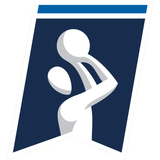
Get more from College Basketball Follow your favorites to get information about games, news and more

